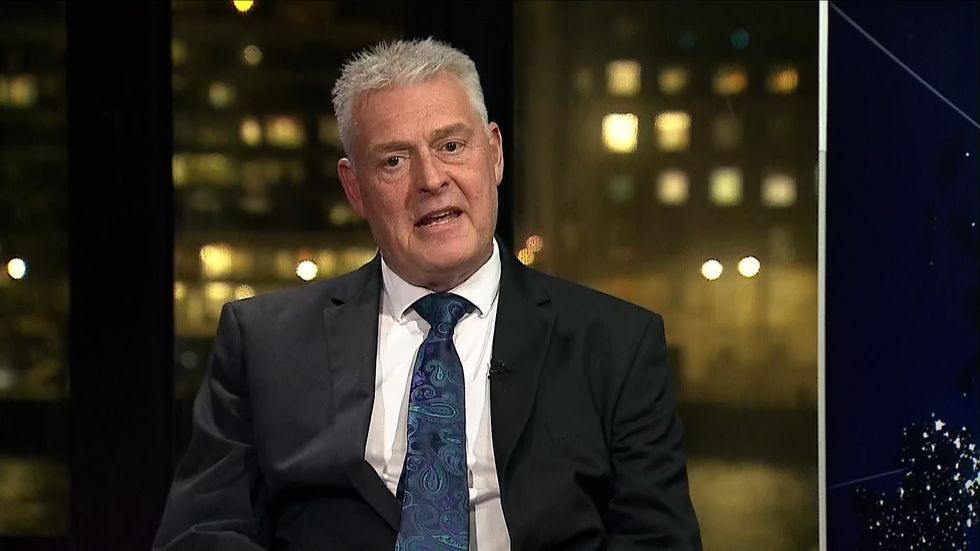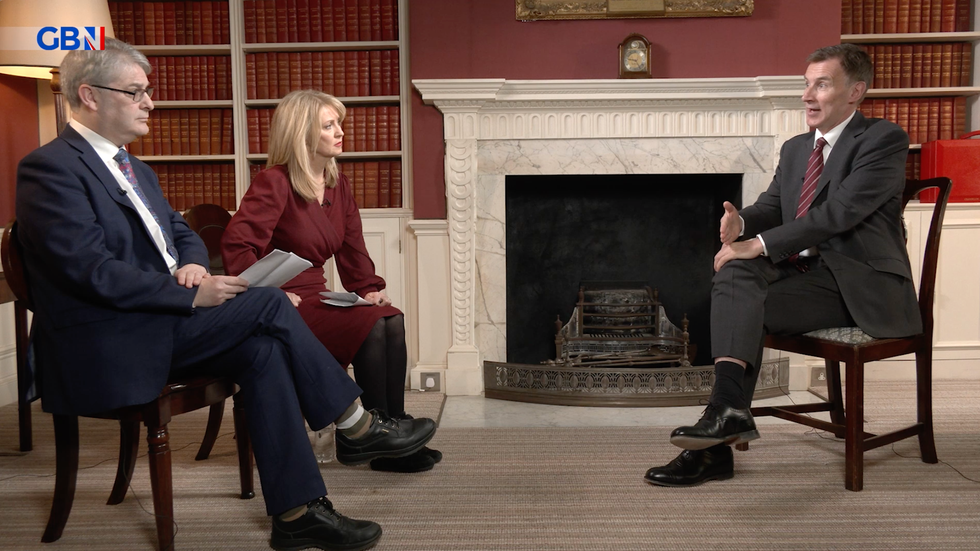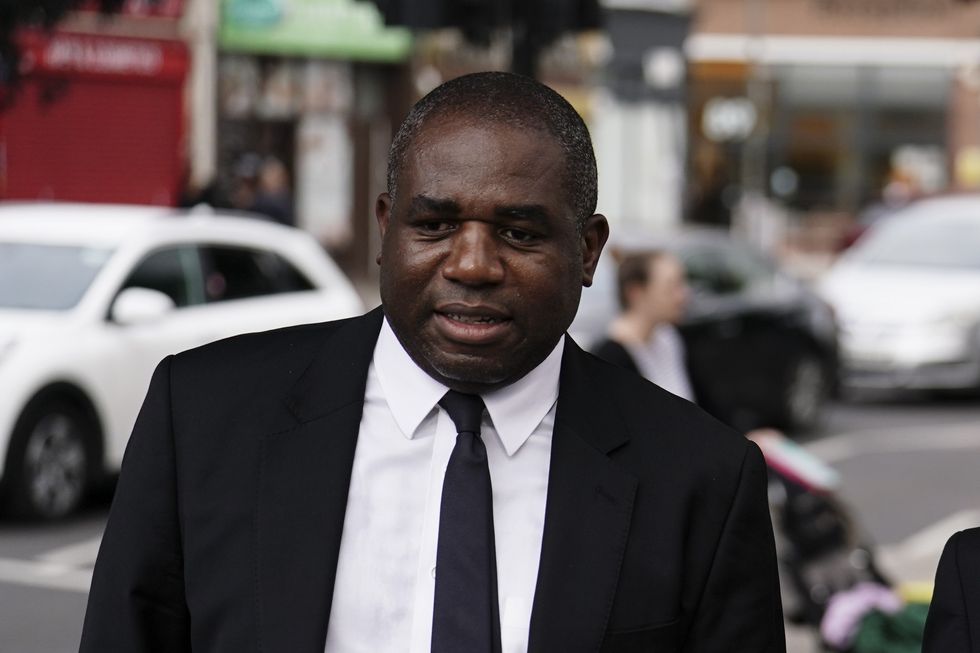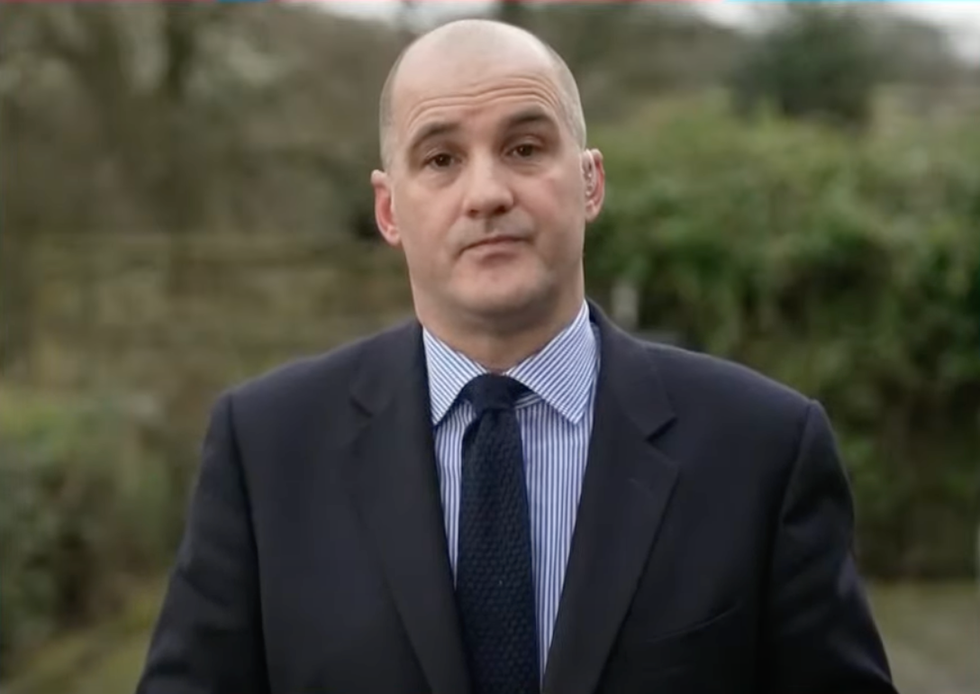
Jacob Rees-Mogg in the studio at GB News during his new show Jacob Rees-Mogg's State of The Nation
PA
As OFCOM shines a light on politicians as TV hosts, a new poll reveals more people are in favour than against
Don't Miss
Most Read
Trending on GB News
The public supports the idea of politicians presenting opinion and interview programmes on TV news channels - and are increasingly concerned that free speech is under attack.
The findings emerged via a new independent poll commissioned by GB News, which comes at the same time as Ofcom, the media regulator, says it will conduct its own research on the growing number of politicians working as hosts on TV news channels.
The survey by JL Partners asked 2,119 people whether they felt politicians should be allowed to present opinion and interview programmes on broadcast platforms.
When asked whether they supported the idea provided politicians embraced alternative views as per OFCOM’s current guidelines – 43 per cent agreed.
 Lee Anderson's new GB News show will broadcast every Friday at 7pmGB News
Lee Anderson's new GB News show will broadcast every Friday at 7pmGB NewsIf the requirement to embrace other views is removed, support for politicians hosting shows fell slightly to 41 per cent, while 36 per cent said they opposed this.
But the margin was even wider when the public was asked about supporting MPs hosting shows where they were “challenged and debated by other guests” - with 49 per cent agreeing and only 21 per cent disagreeing.
The polling also showed there is widespread agreement that free speech is under threat and needs to be defended.
The poll saw 63 per cent agree with the statement "free speech in the United Kingdom is in decline” - just 14 per cent disagreed.

Chancellor Jeremy Hunt joined Esther McVey and Philip Davies for an interview
GB NewsSeventy three percent of people polled said they felt it was important to defend freedom of speech, even if that speech “might cause offence to some people”. Just seven per cent disagreed with this statement.
Rising numbers of serving politicians are now presenting programmes on TV news channels.
Sir Jacob-Rees Mogg, Lee Anderson, Philip Davies and Esther McVey, all current serving Conservative MPs, currently front programmes on GB News.
Several other broadcasters also provide platforms to serving or former politicians.

Labour's David Lammy presents on LBC
PA
Labour’s David Lammy, who serves as the Shadow Secretary of State for Foreign, Commonwealth and Development Affairs, regularly hosts a programme on LBC.
Meanwhile on TalkTV, former Cabinet Minister Nadine Dorries presents a show Former Tory party Chairman Jake Berry - still a serving MP - regularly fronts programmes too.
Ofcom recently announced it will ask researchers to seek the public’s views on the trend.
In December, the regulator stated that politicians are allowed to front current affairs shows outside election periods, but are not allowed to present ‘news’.

Jake Berry regularly appears on TalkTV
GB NewsThe difference between the two is poorly defined, however, and as the rules on politicians presenting programmes date back to 2005, Ofcom now considers it necessary to revisit them in light of the new entrants to the broadcast landscape.
The research may explore whether its current definition of news and current affairs programming remains fit for purpose and look at the balance of political views in peak-time slots and during any election period hiatus.
In a statement issued last year OFCOM explained: “To ensure our broadcasting rules remain relevant and effective, it’s important for us to understand first-hand what people think and feel about the TV and radio content they consume, and how perspectives might change over time.
“The rules around politicians presenting programmes were first introduced in 2005. Given the rise in the number of current affairs programmes presented by sitting politicians and recent public interest in this issue, we are conducting new research to gauge current audience attitudes towards these programmes.”








